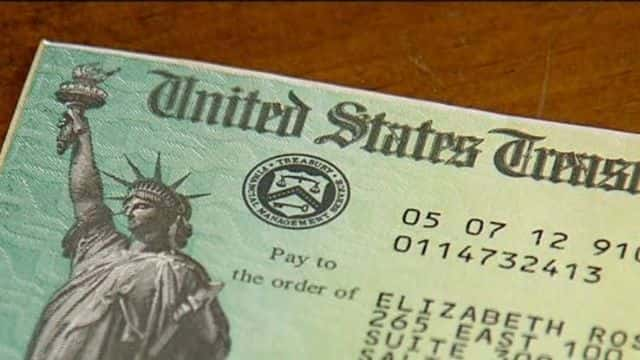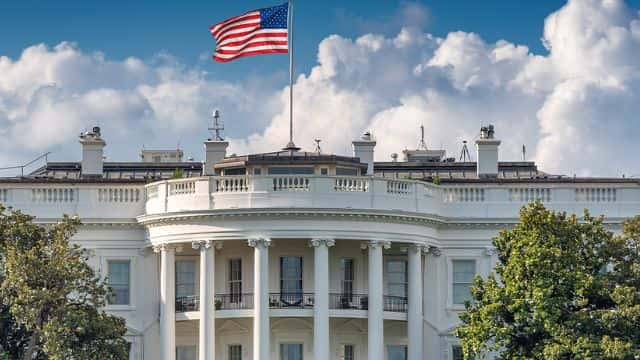Manchin remained silent about the negotiations the whole past week, even though the majority of senators, staffers, and journalists had moved on to other topics:
“I didn’t know whether it could come to fruition. I had no idea, so there’s no point in raising people’s expectations by harping on something I wasn’t aware of in the first place. I managed to earn everyone’s wrath.”
Following the announcement by Manchin and Schumer of what they have nicknamed “the Inflation Reduction Act of 2022,” which is scheduled to be debated on the floor of the Senate the following week, the Democratic Party’s anger quickly morphed into jubilation by Wednesday night.
Even though there are still significant concerns that need to be dealt with regarding whether or not it can meet chamber rules for avoiding a filibuster, and even though Senator Kyrsten Sinema (D-Arizona) has not yet signed off on it, Manchin’s deal with Schumer represents the best news for Democrats in weeks.
In addition, Manchin’s announcement came just hours after the final passage of legislation concerning semiconductors.
This was a bill that Republicans had threatened to obstruct just a few short weeks ago to prevent Democrats from pursuing a party-line tax, climate, and health care package.
The compromise reached between Senators Manchin and Schumer includes around $370 billion in investment in energy and climate change, $300 billion in deficit reduction, three years of subsidies for Affordable Care Act premiums, prescription drug reform, and significant changes to tax law.
According to Manchin, the law was originally “larger than that,” but ultimately, the two Democrats compromised on this version.
As part of the deal that was unveiled on Wednesday, Speaker Nancy Pelosi and Senator Charles Schumer promised to push through legislation that would regulate energy permits. According to Manchin, he had conversations on Wednesday with Schumer, Pelosi, and President Joe Biden.
Manchin claimed that Vice President Biden had told him, after their discussions on the more comprehensive Democratic measure known as Build Back Better had stagnated in December of last year, that Biden had told him, “Joe, it’s not going to help for me to be involved in this… if you can do anything, good. If not, you have my understanding.
“You know, as an old senator, he understands that things are a little rough at times,” Manchin said. “You know, that’s just the way things are.”
In a statement, Vice President Joe Biden congratulated Senator Joe Manchin and Senator Charles Schumer for their work on the legislation and referred to the agreement as “the action the American people have been waiting for.”

As a result of Manchin’s publicised desire to restrict the scope of a party-line domestic policy bill to health care and the reduction of prices for prescription drugs in the absence of additional information about inflation, Democrats anticipated pursuing legislation that did not include provisions about the environment or the energy sector.
While Manchin was sidelined with Covid, Schumer and Manchin continued to negotiate covertly behind the scenes, mostly through staff. This led to the unexpected breakthrough that occurred while Manchin was unable to participate.
There was no need to feel rushed. Manchin stated that the simplest course of action for him would be to “walk away and do nothing… simply stay away.” “That was not the case, as doing so was not the appropriate action to do.”
The deal is very similar to what Manchin had outlined earlier this year as his goals for the party-line bill; but, the tax title of the agreement is far more restricted.
The Democrats intend to raise income for the measure by establishing a corporate minimum tax of fifteen per cent, boosting enforcement by the Internal Revenue Service (IRS), lowering prescription prices, and closing the so-called carried interest loophole.
Notably, the legislation also extends subsidies for the Affordable Care Act through the 2024 election and the first term of Biden’s presidency.
This removes a significant potential source of political friction for the Democratic party. According to Manchin, this “helps folks because you just can’t put [increases] on them during inflammatory times like this.” Manchin claimed this.
It does not include surtaxes on people making more than $10 million per year, putting an end to a push by the majority of Democrats to impose higher rates on the wealthy. Additionally, it does not include a tax agreement for the entire world.
Although Manchin believes that Republicans will never change the tax system for corporations, he believes that the bill should in theory have support from both parties.
Given the lack of clarity around the upcoming midterm elections, he viewed this time as the Democrats’ final and best chance to capitalise on an opportunity.
If we were in any other situation than the one we are in right now, both parties would support this legislation. That is something I firmly believe.
“At the moment, this is the only means of transportation I have available to me,” Manchin explained.
“We have no idea what the future holds in store for us. However, everything points to the possibility of a slight shake-up in the situation. And that shifts the balance of power in the process of getting things done,” he went on to say.
A further twist is that Manchin has stated that the final agreement does not exclude new incentives for electric vehicles.
This is something that Manchin had resisted in what became a significant point of contention during the negotiations.
According to Manchin, the bill provides incentives for the production of new automobile batteries in the United States “and not only be able to build them, but be able to extract the minerals that we need, essential minerals, in North America.”
On Wednesday evening, Schumer convened a conference call with the chairs of committees that have jurisdiction over climate change and senators who are focused on the topic.
According to two Democrats who are familiar with the situation, the agreement with Manchin includes a methane cost in addition to a tax credit of $4,000 for the purchase of old electric vehicles.
According to Manchin, the plan also includes initiatives to improve the environmental friendliness of fossil fuels and to boost production to support American friends amid Russia’s invasion of Ukraine, which has reduced the European fuel supply.
Sinema was made aware of the transaction on Wednesday afternoon but did not provide a remark right afterwards.
The response of Majority Whip Dick Durbin (Democrat of Illinois), when questioned about the accord, was “That’s news to me.”
Others chose not to respond, citing the fact that they had not yet seen the specifics. Sen. Chris Van Hollen, a Democrat from Maryland, stated that the news statement sent by Manchin was his “first clue.”
Sen. Sheldon Whitehouse remarked, “There were hints, but nobody wanted to say anything until it actually landed,” which is an interesting take on the situation (DR.I.). “However, it’s a relief that it’s already arrived.”
Even though the specifics of the agreement have not yet been made public, Democrats were in a buoyant mood on Wednesday afternoon.
This came after months of tumultuous negotiations, during which many believed there was no longer any chance of reaching a climate deal with Manchin. Sen. Elizabeth Warren, a Democrat from Massachusetts, expressed her view on the matter as follows: “At least we’re using the word ‘climate.'” It’s a promising beginning.”
It will also be vital to see how the bill is received in the house. Progressives were overjoyed, and Representative Pramila Jayapal of Washington state, a Democrat, hailed the outcome as “a tremendously big victory.”
And moderate Representative Josh Gottheimer (D-New Jersey), who has made the issue of state and local tax relief his red line, was noncommittal about whether he would dig in even though his top objective was left out of the measure, saying, “Until I see specifics it’s impossible to know.”
After praising Manchin for preventing numerous versions of the party-line legislation, Senate Republicans criticised him for reaching a compromise with Schumer and agreeing to a deal with him.
Sen. Lindsey Graham (R-South Carolina) released a statement in which he expressed his incredulity at Manchin’s “agreement to a big tax increase in the name of climate change when our economy is in a recession.” Graham claimed he couldn’t believe Manchin would do such a thing.
Manchin has stated that he is aware that the legislation will cause a rift in Washington and might potentially alter his reputation.
Manchin is now known as the Democrat from deep-red West Virginia who negotiated a major climate change deal three months before an election. Previously, he was known as the man who thwarted the agenda of Vice President Joe Biden.
Read more:-
- 4 things to know about stimulus checks through 2022 by Fortune
- According to a study, over half of US seniors living alone cannot afford basic expenses.
- How the State’s Far-right Movement Has Been Accelerated by Two Texas Megadonors
Manchin stated, “I’m sure that all of the commentators will come out [from] different directions now, but I’m not worried about me.”
“I don’t believe that you could possibly be attacked any more than I have been assaulted for the past year. Therefore, I have no idea what other harm they could inflict upon me.


